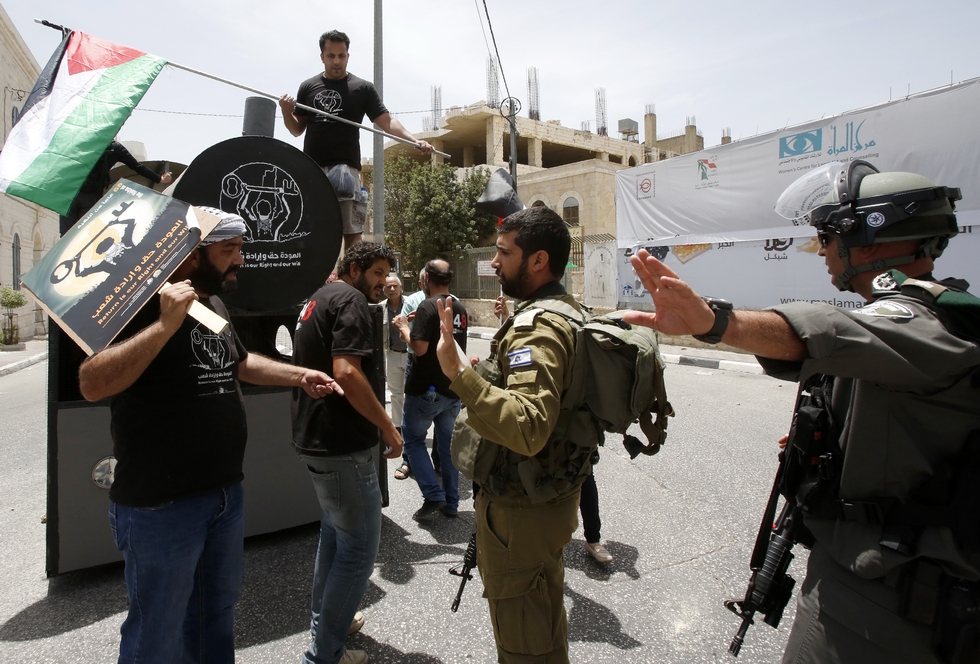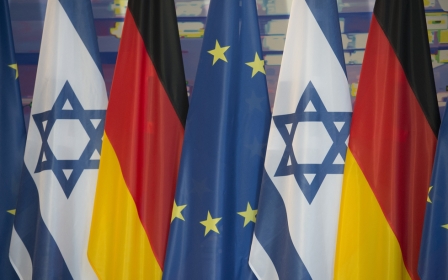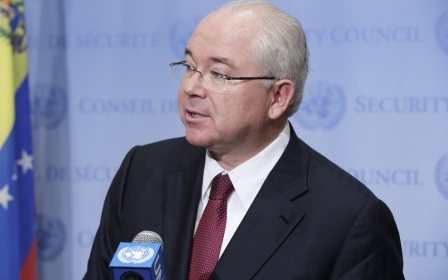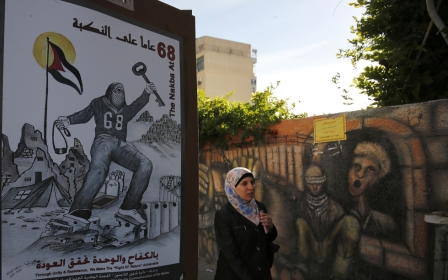Israel's UK ambassador blames Palestinians for having no state on Nakba day

The Israeli ambassador to the UK Sunday said Palestinians were to blame for not having a state of their own, during a speech on the day when Palestinians commemorate the Nakba, or the day of destruction.
Mark Regev, a veteran diplomat and former press spokesperson for Israeli Prime Minister Benjamin Netanyahu, was speaking during a plenary meeting of the British Board of Deputies, an organisation that describes itself as “the voice of British Jewry”.
Regev’s speech came a day after many in Israel celebrated the country’s 68th Independence Day to mark its establishment as a state in 1948.
Nakba Day is commemorated on 15 May, to mark the outbreak of the Arab-Israeli war which ended with the displacement of hundreds of thousands of Palestinians.
In his speech, Regev said he had noticed on Twitter that “there are groups this morning in the United Kingdom celebrating what they call Nakba Day”.
“We Jews celebrated this week Independence Day,” referring to the independence of the Israeli state.
“Jews across the board unite in celebrating our reclaimed sovereignty and independence.”
Regev said that those celebrating the “so-called Nakba Day” needed to acknowledge that the refusal of Palestinian leaders to accept a two-state solution had led to the failure to maintain a Palestinian state.
“Why aren’t you too celebrating 68 years of independence?” he asked, arguing that Jewish leaders in 1947 had agreed to a UN-mandated two-state solution but that Palestinians had rejected the proposal.
“We embraced the two states for two peoples concept. What did the Palestinians do? They said no,” he told the audience in London.
“Who is to blame for the fact that the Palestinians do not have a state of their own? Is it Israel?” he asked.
“[Palestinian leaders] said all or nothing – and they ended up getting nothing.”
Regev, however, echoed Prime Minister Benjamin Netanyahu in stressing that Israel has “no pre-conditions” for entering direct peace talks.
“We want peace – we believe peace is ultimately ... is in their benefit.”
Middle East Eye propose une couverture et une analyse indépendantes et incomparables du Moyen-Orient, de l’Afrique du Nord et d’autres régions du monde. Pour en savoir plus sur la reprise de ce contenu et les frais qui s’appliquent, veuillez remplir ce formulaire [en anglais]. Pour en savoir plus sur MEE, cliquez ici [en anglais].




